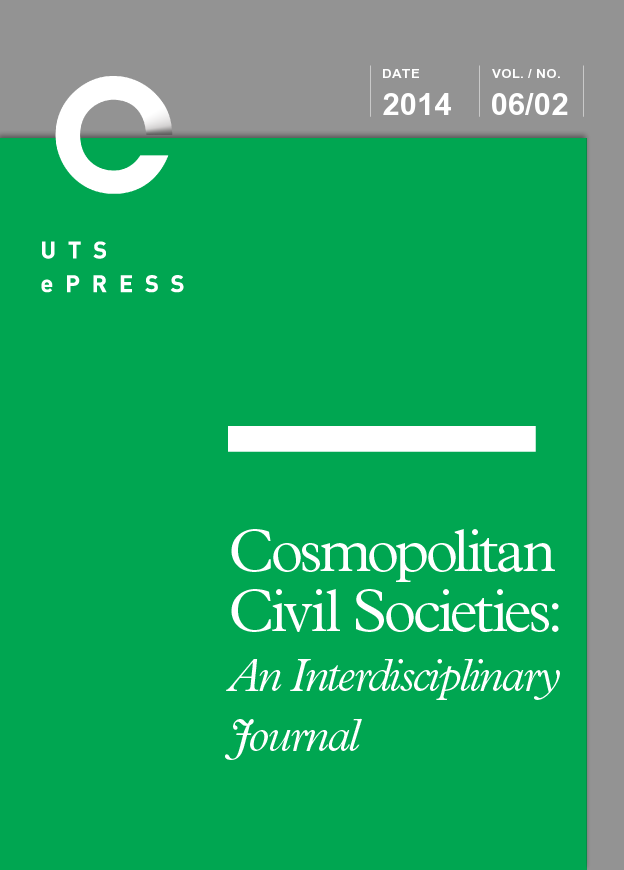Dadirri: Reflections on a Research Methodology Used to Build Trust between a Non-Indigenous Researcher and Indigenous Participants
Main Article Content
Abstract
Abstract: This article focuses on a philosophical approach employed in a PhD research project that set out to investigate sport career transition (SCT) experiences of elite Indigenous Australian sportsmen. The research was necessary as little is known about the transition of this cohort to a life after sport, or their experiences of retirement. A key problem within the SCT paradigm is a presumption that an end to elite sport requires a process of adjustment that is common to all sportspeople—a rather narrow perspective that fails to acknowledge the situational complexity and socio-cultural diversity of elite athletes. With such a range of personal circumstances, it is reasonable to suppose that athletes from different cultural groups will have different individual SCT needs. The researcher is non-Indigenous and mature aged: she encountered a number of challenges in her efforts to understand Indigenous culture and its important sensitivities, and to build trust with the Indigenous male participants she interviewed. An Indigenous philosophy known as Dadirri, which emphasises deep and respectful listening, guided the development of the research design and methodology. Consistent with previous studies conducted by non-Indigenous researchers, an open-ended and conversational approach to interviewing Indigenous respondents was developed. The objective was for the voices of the athletes to be heard, allowing the collection of rich data based on the participants’ perspectives about SCT. An overview of the findings is presented, illustrating that Indigenous athletes experience SCT in complex and distinctive ways. The article provides a model for non-Indigenous researchers to conduct qualitative research with Indigenous people.
Article Details
Issue
Section
Authors who submit articles to this journal from 31st March 2014 for publication, agree to the following terms:
a) Authors retain copyright and grant the journal right of first publication with the work simultaneously licensed under a Creative Commons Attribution License that allows others to share and adapt the work with an acknowledgement of the work's authorship and initial publication in this journal.
b) Authors are able to enter into separate, additional contractual arrangements for the non-exclusive distribution of the journal's published version of the work (e.g., post it to an institutional repository or publish it in a book), with an acknowledgement of its initial publication in this journal.
c) Authors are permitted and encouraged to post their work online (e.g., in institutional repositories or on their website) prior to and during the submission process, as it can lead to productive exchanges, as well as earlier and greater citation of published work (See The Open Access Citation Advantage Service). Where authors include such a work in an institutional repository or on their website (ie. a copy of a work which has been published in a UTS ePRESS journal, or a pre-print or post-print version of that work), we request that they include a statement that acknowledges the UTS ePRESS publication including the name of the journal, the volume number and a web-link to the journal item.
d) Authors should be aware that the Creative Commons Attribution (CC-BY) License permits readers to share (copy and redistribute the work in any medium or format) and adapt (remix, transform, and build upon the work) for any purpose, even commercially, provided they also give appropriate credit to the work, provide a link to the license, and indicate if changes were made. They may do these things in any reasonable manner, but not in any way that suggests you or your publisher endorses their use.
For Volume 5 No 3 (2013) and before, the following copyright applied:
Authors submitting articles to UTSePress publications agree to assign a limited license to UTSePress if and when the manuscript is accepted for publication. This license allows UTSePress to publish a manuscript in a given issue. Articles published by UTSePress are protected by copyright which is retained by the authors who assert their moral rights. Authors control translation and reproduction rights to their works published by UTSePress. UTSePress publications are copyright and all rights are reserved worldwide. Downloads of specific portions of them are permitted for personal use only, not for commercial use or resale. Permissions to reprint or use any materials should be directed to UTSePress.
